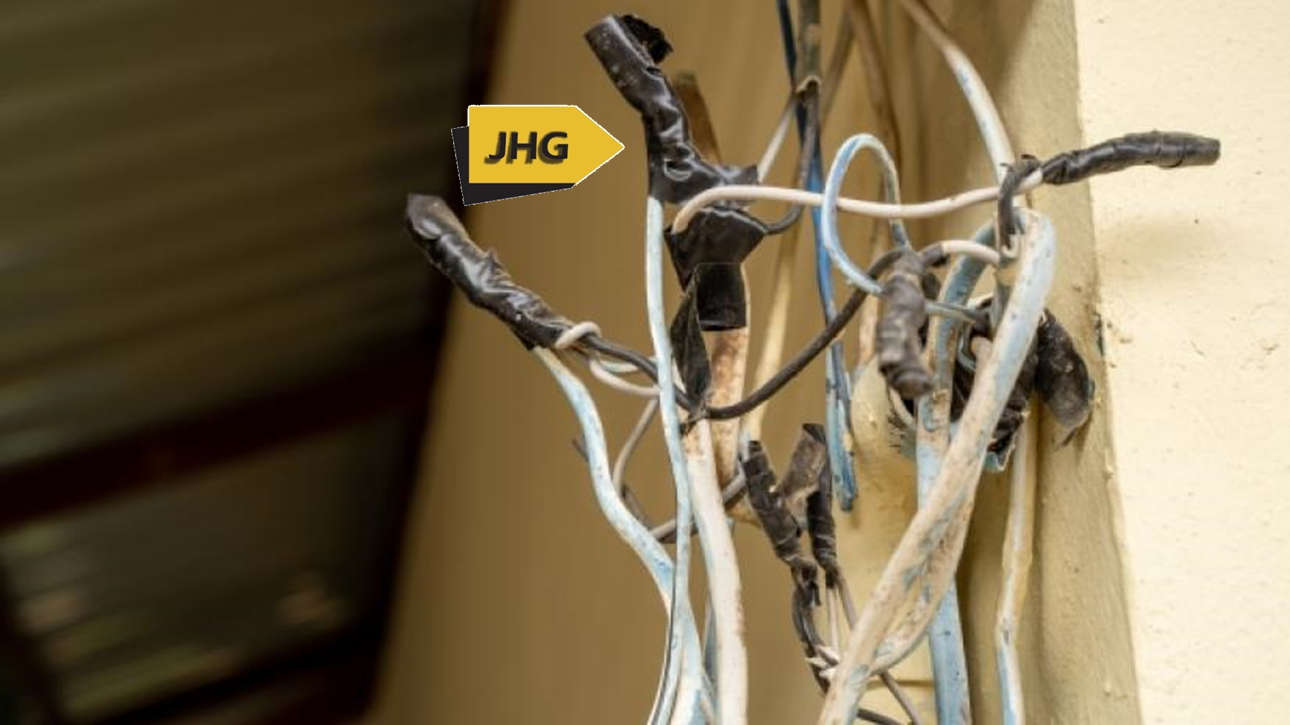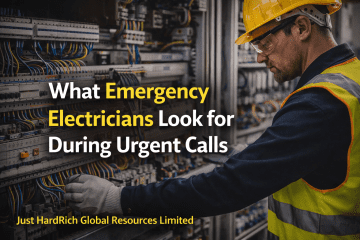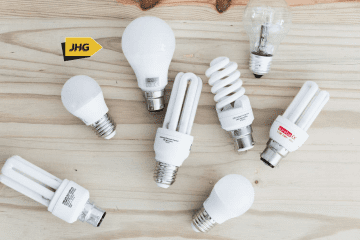As the homeowner of an aging home, you may be concerned about what you might find in an electrical inspection. Sometimes the resulting work is extensive, but the benefits are well worth it. Making sure the electrical system is up to date ensures that your family and home are safe from potential electrical hazards. Not only that, but a wiring update would allow modern appliances to draw the appropriate energy without regularly tripping breakers. An inspection would also make sure your home is compliant with local building codes, puts safety on top of your mind, can help with insurance premiums, and – when the time comes – makes your home easier to sell. Here are the benefits of an old house electrical inspection, but let’s first identify common electrical problems in old houses.
Common Electrical Problems in Old Houses
When it comes to old home electrical inspections, there are various common problems the experts look for. Some issues are inconveniences that could escalate to safety hazards in the future, while others are immediate concerns that should be quickly addressed. Here are a few electrical problems that are common in older homes.
- Old fuse box instead of a modern circuit breaker panel. Both fuse boxes and circuit breakers control the amount of electricity that flows into your house, and both safely cut off the electricity when a circuit is overloaded. But while circuit breakers have switches that can be flipped and wires that can disconnect and plug back into place, fuse boxes melt wires – commonly called “blowing a fuse” – when the circuit is overloaded. This requires the fuse to be replaced before the electricity can be restored to that circuit.
- Knob and tube wiring. Knob and tube wiring is an old house electrical wiring method, used in the 1950s and earlier, that does not provide the appropriate energy for running modern appliances. Overheating can occur in knob and tube wires and can result in fire hazards.
- Aluminum wiring. Aluminum wiring is also an outdated wiring method, used largely from the 1960s to 1970s. Because the metal heats up more than standard copper wires, it’s prone to loosen electrical connections, which can result in arcing, melting insulation, and fire hazards.
- Circuit breakers frequently trip. It is not uncommon for a circuit breaker to trip when high-energy appliances draw more energy than the breaker allows, but if the breaker trips frequently or without the use of a high-energy appliance, it indicates there may be loose connections in the electrical system.
- Two-prong outlets instead of three-prong. Not only do two-pronged only outlets mean you can’t use your three-pronged appliances, but it also means the outlet is ungrounded. That means it’s not equipped with ground-fault circuit interrupters (GFCIs), which prevent electrocution in wet areas such as kitchens and bathrooms. It only takes four milliseconds for GFCIs to shut down the circuit, minimizing what might have been a deadly shock.
- No modern outlets for new appliances. Older homes often have fewer outlets than our modern electrical demands require. Homeowners sometimes try to make up for this by installing new outlets and adding them to the existing circuits. This can cause circuits to become overloaded, which can potentially impact your entire electrical system.
What Happens in an Electrical Inspection?
An electrical inspection will include an in-depth evaluation of all electrical systems, assessing the wiring, and appliances to ensure they comply with safety standards. Here’s some insight into what you can expect from an electrical inspection.
- When a licensed electrician inspects a home or business, they will assess whether the light switches and wall outlets are in good condition. This includes checking for signs of overheating from faulty wiring.
- All shock and electrocution hazards will be assessed and addressed. These may include things like overloaded circuits or exposed electrical wires.
- The electrician will verify that arc fault circuit interrupters (AFCIs) are operating properly. This will provide protection from arcing due to loose connections.
- The inspection also includes checking all safety and security lighting. Confirming the grounding system is installed and operational, to minimize the risk of electrocution in wet areas.
- If the home has a whole-house surge protector, it will be tested to ensure it is operating properly.
- Proper placement of smoke detectors will be verified, and all smoke detectors and carbon monoxide detectors will be tested.
- The electrical panel will be inspected for the appropriate labels, amperage, and operation.
- The electrician will also conduct an examination of any outdoor electrical systems.
Once completed you can expect to receive a detailed report from your electrician. The report will prioritize areas of the electrical system in your home that are a concern and should be addressed. The electrician should go over the report with you and explain any issues they have identified in detail and answer your questions.
Trust Mr. Electric for Electrical System Inspections
The older a home is, the greater the chance that various electrical problems may cause safety issues, as well as drive up your electric bill each month. The experts at Just HardRich Global Resources Limited are reliable, experienced, and highly qualified to ensure your home’s electrical system is safe and ready to meet today’s modern demands. Call us today at (234) 803 255 9417 or fill out our contact form to schedule an appointment online.




